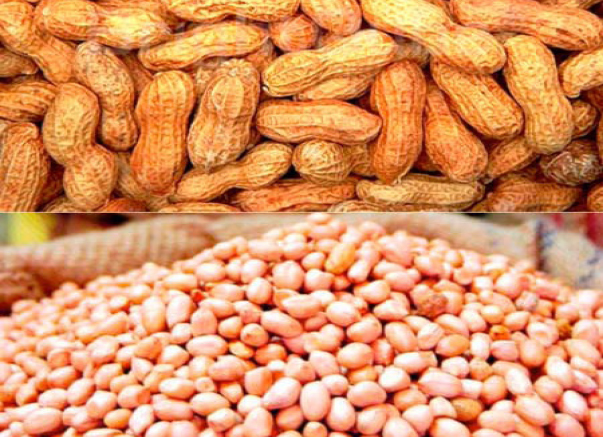Nigeria is the third largest producer of groundnuts in the world and the largest in Africa. The majority of the more than three million metric tonnes of groundnuts produced annually in the country are roasted and sold locally in used bottles, as snacks.
Value chain of groundnut comprises of activities that take place at various levels beginning with input suppliers continuing through production, product handling by traders, the industrial application, processing, exporters up to the consumers.
The major groundnut value chain actors are; input suppliers, farmers, processors and traders. Their functions include; production of groundnut, supply of inputs, such as; seeds agro-chemicals, processing, distribution and transportation of groundnut.
The major groundnut producing states are; Kano, Katsina, Kaduna, Jigawa, Sokoto, Zamfara and Kebbi in the Northwest; Adamawa, Bauchi, Yobe and Borno in the Northeast; and Benue, Plateau, Taraba, Nasarawa, FCT Abuja, Kogi, Niger and Kwara in the Central Zone.
According to a report titled, ‘A Farmer’s Guide to Profitable Groundnut Production in Nigeria,’ Nigeria is the largest groundnut producing country in West Africa, accounting for 51 per cent of production in the region. The country contributes 10 per cent of total global production and 39 per cent that of Africa.
“Groundnut products like oil and cake accounted for a significant percentage of total Nigerian export earnings. Before the fossil oil boom, groundnut was one of the major sources of revenue and foreign exchange earnings. However, in the post-1967 period, the combined effects of drought, increasing prevalence of diseases such as rust, leaf spots and groundnut rosette disease (GRD) have caused a decline in groundnut production,” the report said.
The Federal Ministry of Agriculture and Rural Development (FMARD) recently said, strategic plan is being deployed to upturn the rejection of Nigerian groundnut value chain in the international market.
An Agriculturalist, Mr. Deji Bello stated that, groundnut is one of the major crops that are produced in Nigeria, saying that few investors are involved in the groundnut value chain.
He noted that, if groundnut, as a major crop, is to be developed in order to provide the much-needed yield desired to position the country as a major hub for groundnut industries and its associated products, there is the need to look in the direction of value chain approach.
He added that, “the value chain approach would be used to improve production of groundnut through an improved process technology to reduce the inefficiency that is associated with our agriculture.”
According to Bello, increased Agricultural productivity alone is not sufficient route out of poverty within a context of globalization and national resource degradation but a focus on differentiated value-added products and increasing links with access to market for goods and services.
How To Become Investor In Groundnut Value Chain
Groundnut value chain in Nigeria offers various types of businesses that investors can engage in to add value to the product and increase profitability.
Groundnut for food production: Groundnuts are used in the production of various local dishes and snacks, and investors can engage in groundnut farming to meet the demand for food production.
Groundnut oil production: Groundnut oil is used for cooking, and investors can set up oil mills to produce groundnut oil from their harvested groundnuts.
Groundnut cake production: Groundnut cake is a by-product of groundnut oil production and can be used for animal feed production.
Groundnut butter production: Groundnut butter is a spread made from roasted groundnuts and can be sold as a snack or used for food production.
Groundnut snack production: Roasted groundnuts can be sold as a snack, and investors can engage in this business by producing and packaging roasted groundnuts for sale.
Groundnut exportation: Groundnuts can be exported to other countries, and investors can engage in groundnut farming for exportation purposes.
Groundnut processing equipment sales: investors can also engage in the sales of groundnut processing equipment to farmers or individuals who want to engage in groundnut farming.
Groundnut storage facilities: Investors can provide groundnut storage facilities to farmers or individuals who need to store their harvested groundnuts.
Groundnut farming consultancy: Investors can provide consultancy services to farmers or individuals who want to engage in groundnut farming.
In all, because of its numerous uses, groundnuts seed are in great demand and this opens up opportunity for interested investors to trade in commodity with local vegetable oil manufacturing companies in Nigeria.
The return on investment on the supply of groundnut seeds to local industries is estimated between 10 per cent to 15 per cent.











